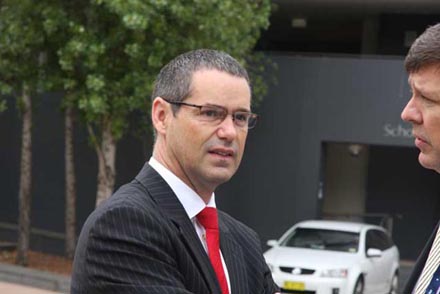Enex: Filtering effective, negligible impact

Communications Minister Stephen Conroy today released the highly anticipated results of a test of ISP-based filtering technology, which appeared to show the technology was effective and delivered only negligible speed impact to users, within the parameters set by the communications regulator.

Stephen Conroy's ISP filter works
(Credit: Liam Tung/ZDNet.com.au)
"Testing revealed that the three ISPs filtering only the [Australian Communications and Media Authority (ACMA)] blacklist had no noticeable performance degradation that could be attributed to the filter itself ... All participants in the pilot were successful in blocking 100 per cent of the ACMA blacklist. This was a requirement of the pilot," the Enex report stated.
The tests, conducted by Enex Testlabs along with nine ISP participants, broadly revealed that while ACMA's URL blacklist can be perfectly blocked, a more complex list of websites that can block all sites considered harmful to children would also result in significant over-blocking.
"Enex considers it unlikely that any filter vendor would achieve 100 per cent blocking of the URLs inappropriate for children without significant over-blocking of the innocuous URLs because the content on different commercial lists varies and there is a high rate at which new content is created on the internet. Enex has also noted, through previous testing, that the higher the accuracy the higher the over-blocking," Enex reported.
The tests revealed there were also problems with preventing circumvention of a filter that used ACMA's black list.
"A technically competent user could, if they wished, circumvent the filtering technology," said Enex. "Testing showed that the filters used for the ACMA blacklist only were more easily circumvented than other more complex filters used to cover a wider range and volume of material."
However, the report also found that "commercial lists", which go beyond ACMA's 1000-odd long list of banned URLs, would unlikely perfectly filter banned content due to content on those lists changing too frequently.
Attempts to prevent circumvention may also have a greater impact on an ISP's performance, according to the trial's results. While filters could detect an illicit content host's attempts to obfuscate the source of that content, thereby escaping the blacklist filter, Enex found that by doing so an ISP would sacrifice network performance.
Telstra, which had conducted its own filtering trials, said it did not test circumvention because it believed that any technically competent user could find a way around the filter.
Some ISPs, including Telstra and iiNet, have urged the government to release clearer policy around the filter. Issues included whether companies that have been added to the blacklist are not alerted to the fact, while there is no mechanism to redress incorrect inclusions on the list.
More to follow.